Aug. 17, 1938: Armstrong vs Ambers I
There is only one way to become a truly great boxer and that is to compete against other truly great boxers. Back in the day, if a fighter was near the top of the heap, this was a more likely prospect than it is now. That’s because, simply put, there were more great fighters around. There was also a constant demand for fistic entertainment with boxing cards taking place on at least a weekly basis in pretty much every major American city. Unlike today, the top talents fought on a frequent basis, which meant the pretenders were separated from the contenders in short order and, one way or another, only the very best rose to the top.

The point being that Lou Ambers, who campaigned during the ultra-competitive 1930’s, is one of the all-time great lightweights. This is not up for debate; it’s a fact. And the reasons why are easy to set forth, those being Tony Canzoneri, Frankie Klick, Baby Arizmendi, Fritzie Zivic, and Al “Bummy” Davis. We could add in Sammy Fuller and Johnny Jadick too if we want, but those five names are really enough.
The other name to add of course is Henry Armstrong. And the key point is this: as great as Ambers was, Armstrong was greater. And he proved it on a hot August night in Madison Square Garden, in the process becoming the first and only prizefighter in the whole long history of this brutal trade to hold three divisional world titles at the same time. And yet, strangely enough, at the end of fifteen rounds of all-out warfare, Armstrong’s stupendous and historic achievement was not the story of the night. But more about that in a minute.
So we are talking about greatness in boxing. And a night when two truly great warriors battled for the undisputed lightweight championship of the world in Madison Square Garden. This was 1938, during that global economic catastrophe they call “The Great Depression,” which meant the fight gyms in every major American city — and there were a lot of fight gyms back then — were full to bursting with desperate young men looking to become champions, or at least find a way to earn a little cash for slinging leather. There were only eight truly legit weight divisions and there was only one world champion for each. So, to repeat myself, this was a different time, when the competition was beyond fierce and only the very best could crack the top ten, let alone challenge for the top of the mountain.
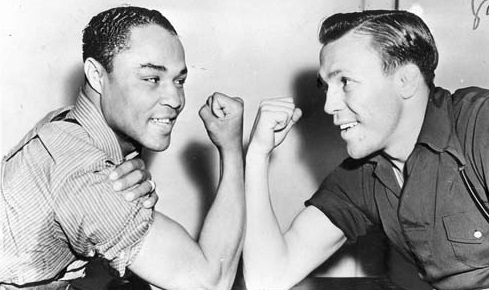
And the extraordinary Henry Armstrong was already carrying not one, but two world title belts into the ring with him that night. The previous October, after having completely decimated the featherweight ranks over the course of six years, he won the 126 pound championship with a knockout over tough Petey Sarron. Fourteen wins later, he challenged the great Barney Ross for the welterweight title, battering the popular but aging champion over the course of fifteen one-sided rounds.
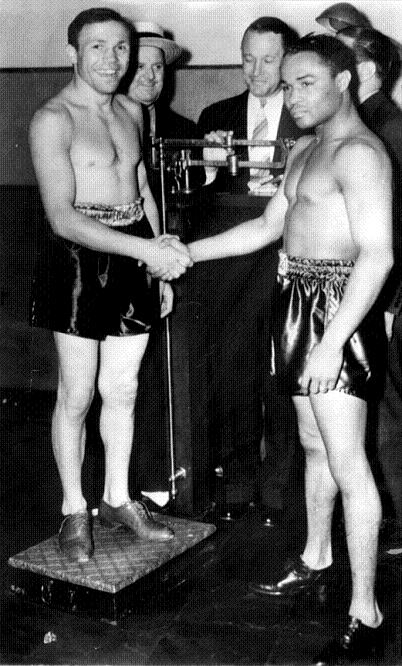
This victory made Armstrong, already a major draw, a legit sports star, for back then, unlike today, double champions were a rare and very splendid thing, the equivalent of say a tennis player today winning a career “Grand Slam,” something only eight men have ever done. Now, with his dominant win over Ross, there could be no question that “Homicide Hank” was special, a true great of the ring, but since he had skipped over the lightweight division, the question many were asking was what if he dropped back down to 135 and challenged Lou Ambers. Could he become a triple crown king?
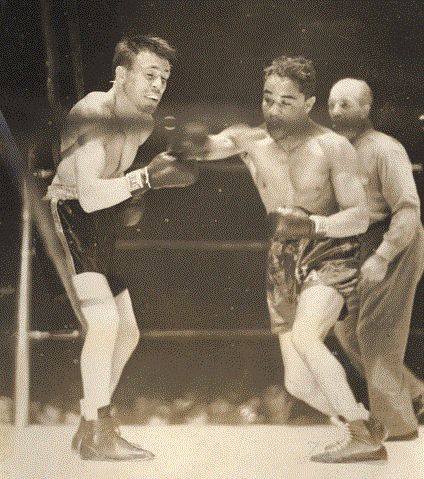
Yes, Ross and Tony Canzoneri had already accomplished this feat, but only if one counted the so-called “junior” weight divisions as being on par with the regular ones, which most did not, and even then, they had not held the championships simultaneously. The great Bob Fitzsimmons had won the middleweight, light heavyweight and heavyweight titles in succession; otherwise, no one had ever threatened to do what Armstrong was about to attempt. The featherweight and welterweight championships were his; a win over Ambers would mean Henry also held the lightweight crown at the same time, an extraordinary, unprecedented feat, one that would automatically make him one of the greatest boxers who had ever lived.
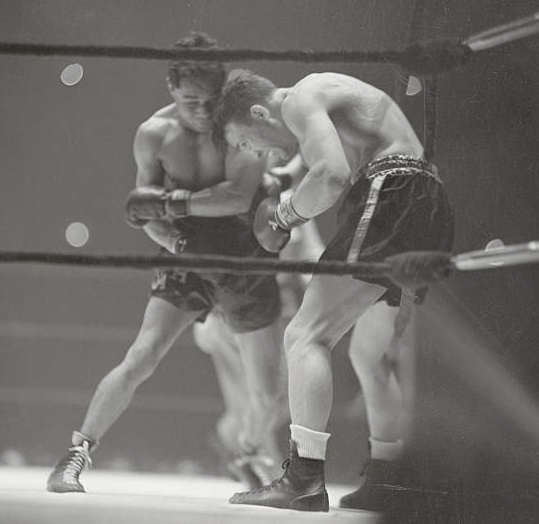
But now we circle back to the question of greatness and we recall that while Sarron and Ross represented formidable opponents, the former was a solid underdog and the latter was past his best days. Ambers was a different story. Young, game and in his prime, the champion had more than proven his mettle with wins over Tony Canzoneri, Jimmy Vaughn, Baby Arizmendi and Pedro Montanez. Bottom line: Ambers was great and he was going to do all he could to test the greatness of Armstrong. That he did and thus the first Armstrong vs Ambers clash was a fifteen round classic, one of the truly great battles in ring history.
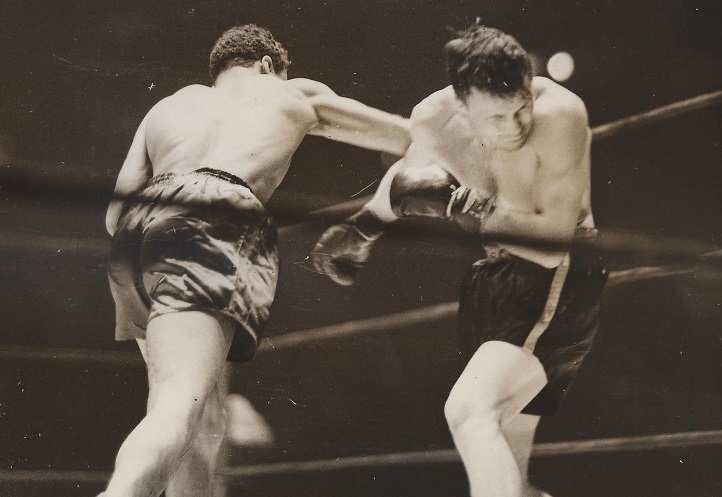
The early rounds saw Armstrong the aggressor, setting a wicked pace and out-working Ambers with his whirling, non-stop attack and at the end of round five a powerful right to the jaw put Ambers down but the bell saved him from having to beat the count. Round six saw Armstrong in command and administering a heavy battering and a big right hand put Ambers down again, this time for a count of eight. When Lou rose Henry was all over him, pressuring relentlessly and pounding home vicious body blows.
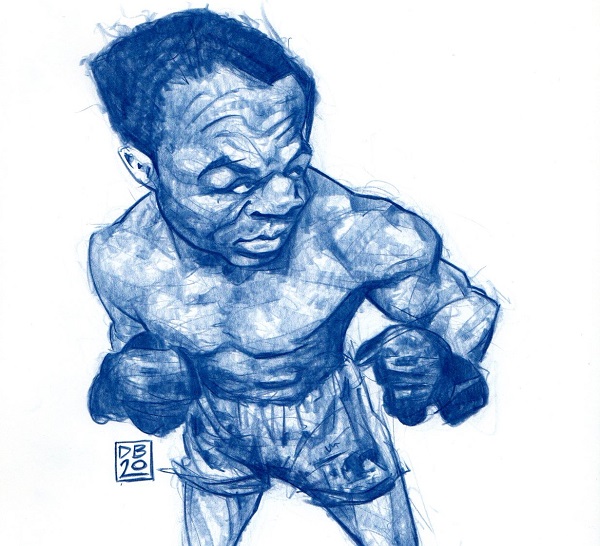
But if Henry was winning, he was also taking his share of punishment in a grueling, toe-to-toe war. Armstrong vs Ambers was proving to be a vicious slugfest, both men pitching and catching, and now Ambers was rebounding, taking the fight to Henry and winning rounds. By the tenth Armstrong was clearly ahead but he had suffered a deep gash inside his mouth along with cuts to both eyes. At the end of the round referee Billy Cavanagh came to Henry’s corner and announced he was going to stop the bout. “Don’t stop it,” said Henry. “I’m winning this fight.” “The ring is full of blood,” replied the referee. “And it’s your blood.” “Then I’ll stop bleeding,” said the irrepressible “Homicide Hank.”
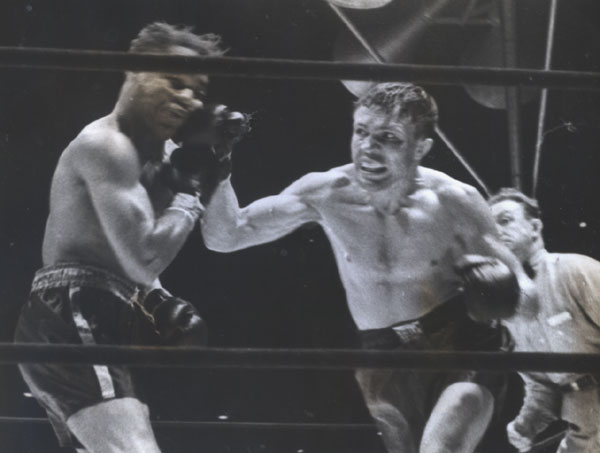
When the bell rang for round eleven Henry refused his mouthpiece, the better to keep the blood in his mouth from escaping and for the next five rounds he swallowed his own gore as he pursued and pounded away. But in round thirteen it was Ambers who dug deep, finally blunting Armstrong’s attack with his own offensive output and sparking a late round rally that thrilled the crowd. It was not enough to change the outcome, but at the final bell it was a dazed and exhausted Armstrong, not Ambers, who stumbled on failing legs to his corner.
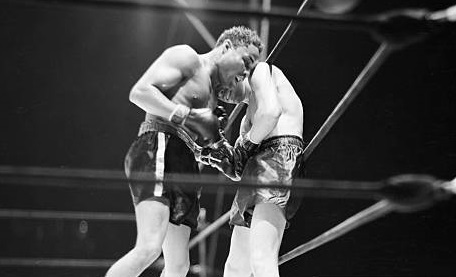
The final decision was close but primarily because Cavanagh had taken three rounds from Armstrong for low blows. But you couldn’t tell that to most in the New York crowd that night. When the verdict was announced the rafters of the Garden shook from the roar of an angry mob, the spectators booing the decision and showering the ring with garbage. The fans were inspired by the courage of Ambers and his heroic late-round rally and instead of applauding the new triple crown king for his astonishing achievement, they decried what they regarded as an unjust outcome.

But if in fact Henry Armstrong clearly deserved the victory, it had still been a rough, punishing, action-packed struggle and in his dressing room afterwards the new champion declared it to be his all-time roughest and toughest match. “I’m sick and I’m almost out of my head with pain,” he told reporters. And even years later, after his career had ended, the legendary champion asserted that his first battle with Ambers was his “toughest title fight.”
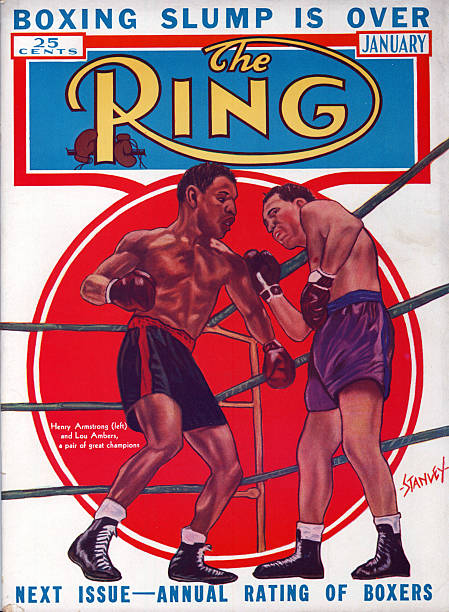
But such is the price of greatness. No one will ever question the fact that Henry Armstrong is, pound-for-pound, one of the finest fighters to ever step through the ropes, a true legend. And he achieved that lofty status by fighting and beating other great fighters like Barney Ross, Ceferino Garcia, Benny Bass, Baby Arizmendi, Frankie Klick, Lew Jenkins and Fritzie Zivic. And of course, one Lou Ambers, who most reluctantly surrendered his world lightweight title to Armstrong in a brutal war, and in so doing guaranteed the greatness of “Homicide Hank.” — Michael Carbert

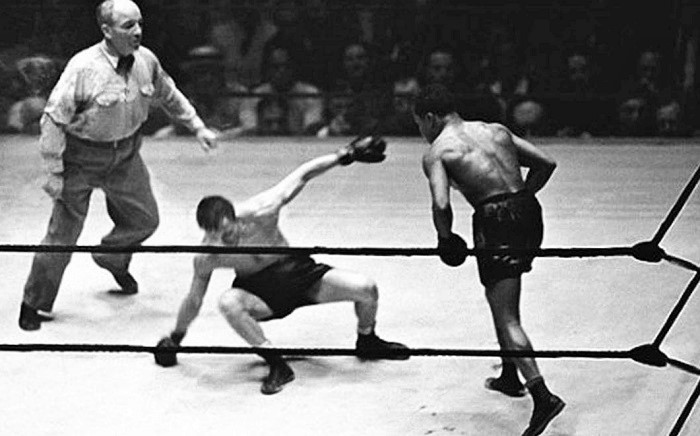

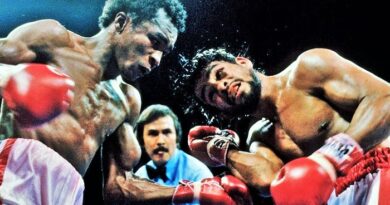
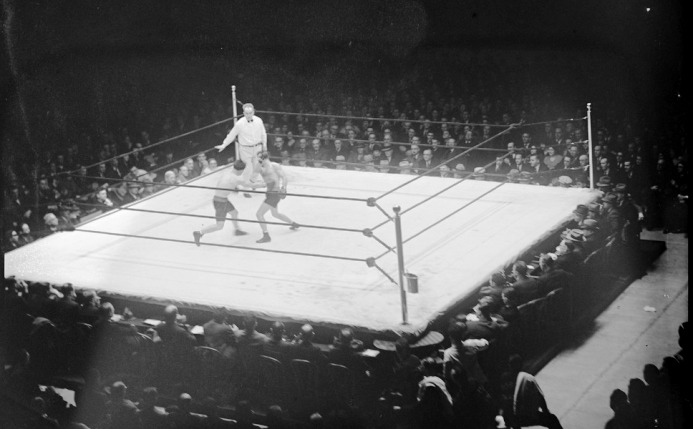
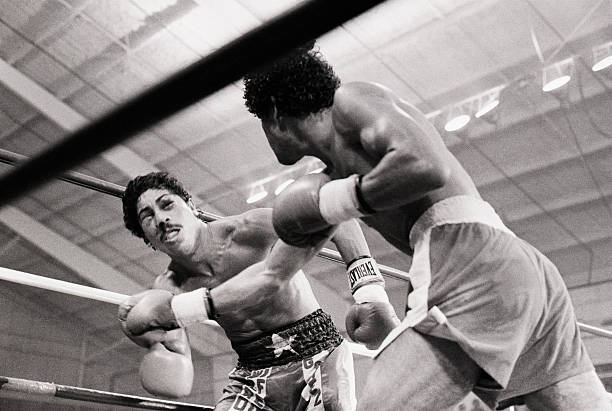
Armstrong was truly an all time great, but it wasn’t the fact he held those titles as much as it was the way he done it. He didn’t just beat guys, he hammered them all over the ring.
Great article. Thanks for giving us -nostalgic boxing fanatics- a time travel machine on your words.
He was Smokin’ Joe before there was Smokin’ Joe